Text
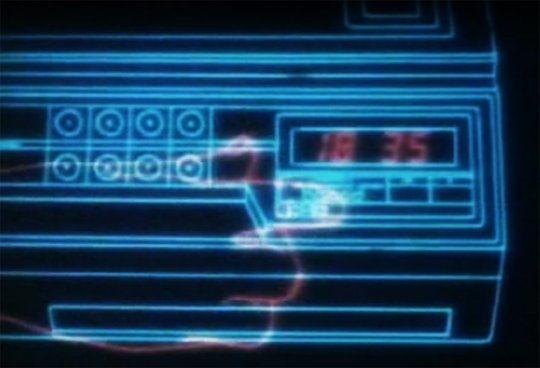
A Tribute to Chuck Person’s Eccojams
By E. Schoop
The age of pop detritus has been upon us for quite some time. Not so embedded in the virtual age, but rather, the analog era of which preceded this revolution was full of bargain-bin pop. And so, the cultural zeitgeist overflowed with works briefly shining and flaming out like the proverbial comet, falling into obscurity. For the critical eye, it has been trained and tested to disfavor kitschy novelties, “corniness” being an operative phrase to describe this phenomenon. Beneath the sewers of disregarded music lay a dormant beast of melody and sensation. Daniel Lopatin, aka Oneohtrix Point Never, set a path that has become a full-blown movement. If one is to take influence as the sole arbiter of taste, then Chuck Person’s Eccojams Vol. 1 is surely the most important avant-garde album of the decade.
Simplicity is key, but simple does not mean easy. Slowing down music and warping it to great effect had been a concept since the days of DJ Screw had Houston mesmerized with chopped and screwed and Lopatin realized the possibilities of a genre that was reductive ad infinitum, curation by rearrangement and a keen ear for the rhythmic structure of a song. Previously, he’d flirted with these ideas through his sunsetcorp Youtube channel, allowing for a less structured aesthetic to appear, floating bits and pieces of his new ideas into the public. The earliest snapshot on the Internet Wayback Machine has “nobody here” at 51,000+ views, which, while numerous, show the lack of virality Lopatin was yet to cultivate. Even so, comments like “The sole reason Youtube should exist” and “They should play this at Chris De Burgh’s funeral” were indicative of the allure that “eccojams” held in the populace’s imagination.
Through the aptly-named Curatorial Club, Lopatin released a mixtape under his Games alias, further creating a world only distinguished by 80s R&B samples and remnants of an HBO afterlife. Spend The Night With might be a supplement to the ethos Lopatin was defining himself by in this era, but it stood as a little beside to the plunderphonics he would come to create in both Eccojams and his next Oneohtrix release, Replica. There seemed to be an effortlessness insofar as grafting samples for songs, with the likes of Janet Jackson, Toto, and Fleetwood Mac all being used as maestros with which Lopatin could craft his singular vision.
“A1” is a sublime way to begin the album. Before all the “Africa” memes, before the Toto-Weezer bizarro crossover, Lopatin predicted the future with this slice of heaven, a cosmic entity that forces the listener into bliss, whether consciously or unconsciously. It’s a perfect primer for the Chuck Person galaxy, assaulting the senses in a barrage of track splitting and cutting that would make John Oswald blush. The signature technique of pulling a single phrase from a song is unveiled here, wherein Toto frontman Joseph Williams sings “Hurry boy, she’s waiting there for you”, it’s chopped into a beautiful repetition that buoys the entire song to euphoria. Chuck Person draws an incredible conclusion from the pop tradition of ephemera -- only a few seconds matter.
sunsetcorp again rears its prescient head with “A2”, adapted from “angel” off of Memory Vague. Hauntological pop was nothing new at the time, with Ariel Pink and Leyland Kirby dabbling in the genre, but Lopatin took it to a whole new level with the track. “Angel please don’t go” provides a goosebumps-inducing refrain, Christine McVie’s vocals warped and looped like a psilocybin nightmare. The use of vocals is incredible, affecting mind and body and transporting the listener into different worlds and states of being. Lopatin’s re-appropriation tactics came to define the concept of vaporwave itself, as choral focus of pop magnified at-large. Never before was the human voice so acutely presented, its power in the abstract realized by the curious power of Ableton.
The three-piece of “A1”, “A2”, and “A3” may be one of the most potent 3-track sequences on any album. “A3” is the most widely-known song off Eccojams, and for good reason. It’s a massive piece, a song that could fill stadiums given its euphoric propensity. Fantastical images abound, bringing JoJo’s “Be real, it doesn’t matter anyway / You know it’s a little too late” from pristine into dazed iconography, a collusion of sounds and senses. What’s even more fascinating is that Lopatin then turns around and samples “Castles in the Sky” by Belgian trance project Ian Van Dahl, finding an ornate balance between the polished pop of JoJo and the kineticism of Eurodance in an ambient interlude.
There are more sunsetcorp deep cuts on here repurposed as a cohesive unit, such as “demerol” as “A4” and “nobody here” as “B4”, but the true stars are the previously unreleased jams that Lopatin cooked up in his laboratory. In his Reddit AMA he alluded to “cryogenically unfreezing” them, and it’s an apt metaphor for such otherworldly music. “A6” features Janet Jackson trapped in the A&R purgatory of pop, glamorizing the dissonance until Lopatin cranks up the chopping, until Janet is no more. “A8” is absolutely fascinating, and listening back to Marvin Gaye’s “My Love Is Waiting”, it’s wondrous that the sensual elegance of Gaye could become such a deformed product, a tangled mess of misshapen R&B that is utterly majestic at the same time.
The second half is much more akin to noise, finding a home in cacophony rather than keep relying on the scrambling of hits. While there are straightforward samples like “Me Against The World” by Tupac on “B5” or “These Dreams” by Heart on “B6”, Lopatin opts to go for a manic approach in his quest boil pop down to its essence. In an interview with Simon Reynolds, he explains this process saying “Noise can be sculpted down to become pop; pop can be sculpted down into noise.” Eccojams plays with these assertions constantly, erasing any sort of dichotomy present beforehand. “B1” is a sensory overload, with all the energy of a panicked anxiety attack, until its outro calms the mind and body. After, “B2” packs radio static together and unravels it, syncopation drowning out any coherent thoughts. It’s as if Lopatin cut and pastes memory until nothing familiar is left.
Vaporwave’s influence has been abundant through modern culture, from the hyperreal facets of music videos by Drake and Tame Impala to our endless obsession with 80s and 90s culture being rebranded and sold to us, there isn’t an online soul who can say they haven’t stumbled across some form of this phenomenon. Yet beneath all the memes and bastardization lies a cultural statement of hybridity and ephemera, and Chuck Person stands in-between all of this. It’s more philosophically meaningful and spiritually fulfilling than any other release in the microgenre, artistically brilliant and packed to the brim with matchless ideas undeterred by the limits of audio software and the human brain. Chuck Person’s Eccojams Vol.1 is the emotions we’ve never felt and memories we don’t have, sealed deep into the shared consciousness of us all. And to think, Lopatin intended all this as a joke.
40 notes
·
View notes
Photo

City Pop: The Internet’s Lost Genre
by E. Schoop
In the internet age, we have all become crate diggers and plunderers of the abstract. One of the great things about the vast information we have at our disposal is not just its spread through communities, but how it takes on a life of its own. Online movements like net art or vaporwave may not have always conduced extraordinary work, yet it has brought about knowledge to pieces and genres many had not known before. By extension of the hypnagogic craze that Tumblr, 4chan, and Reddit have all spurred on, city pop has re-surged in popularity and rightfully so.
But let’s not give curation all the credit for city pop’s acclaim. To be frank, the genre has been ripe for a reawakening and the sequence of sampling connections linking Tatsuro Yamashita to today’s youth was an easy outlet. Despite anime’s huge presence here in the West, we collectively haven’t given Japanese music a chance, yet culturally there is a wide attraction to their media and style of creation. Hence, city pop enters as a perfect conduit. The rateyourmusic generation synthesizes as whole with this avenue, a type of music so focused on hybridizing jazz, funk, and pop that it’s easy to love whether or not you ever found smooth jazz far too kitschy.
youtube
Take Toshiki Kadomatsu for example. This is a composer that not only writes virtuosic melodies, but links the rhythm with a pictorial quality on the level of a Steely Dan or Bob Dylan. However, in his case, city pop was intrinsically linked with the prosperity of 80s japan. When one sees the neon lights and tropical locales everpresent on album covers, it belies the prospect of a serene, capitalist utopia that Japan modeled itself as. He makes you believe you’re on a beautiful Okinawa beach and not Ohio in February. It’s euphoria only an excessively funky Japanese man can provide, and doubly impressive being an all-instrumental album too.
City pop is also a genre that can pride itself on having a strong sense of gender equality. Some of the best artists who crafted this style were female, including Junko Ohashi, Momoko Kikuchi, and Noriko Miyamoto. One could argue that female singers were merely used as an object to draw in the male idol audience, but this reductive idea doesn’t acknowledge the presence these women commanded as Japan’s top artists of the 80s. Check out this clip of Momoko Kikuchi and watch how she only needs her ethereal voice in order to put on a classic performance, neglecting to move around as if showmanship can hold her back. It’s a moment of the sublime, city pop as true transcendence, and it beats through a shy girl’s heart.
youtube
We’re always wishing for a better place or a better time. To share experiences with ones we hold dear, and make meaningful memories. City pop makes these dreams a reality, at least insofar as providing a musical gateway to personal satisfaction.
#city pop#vaporwave#80s#japanese#tatsuro yamashita#toshiki kadomatsu#junko ohashi#momoko kikuchi#noriko miyamoto#internet
2K notes
·
View notes
Photo
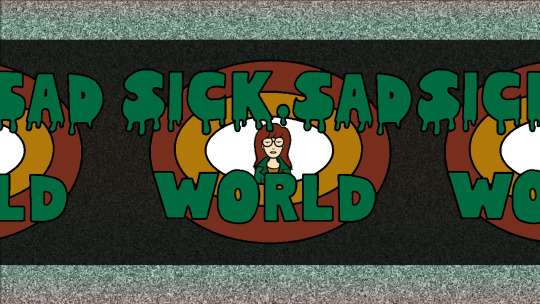
Emotional Algebra: The Formulas of Television and What It Means for Daria’s Sick, Sad World
By H. Hernon
Human beings can be broken down into a series of patterns. The same can be said for our media. For as much as we complain about tropes, stereotypes and formulas there's a reason they're so prevalent: they work. They work really well. As a self-declared semi-creative, this can be frustrating. There's no need to innovate. There's no need to try something new. We've wasted our time on English classes, social science classes, and the dreaded media classes when we could've been doing math and science because that's all you need. Grab the formula, plug in Chris Pratt and Anna Kendrick and you've got yourself a hit. No thinking necessary in this sick, sad world.
Or perhaps I'm just in a nihilistic mood because I've been binge watching MTV's Daria. The show works incredibly well as a slice-of-life for late 90's culture- it captures a certain early internet pessimism and necessary disdain for everything through the lens of high school apathy. But I would argue the show works on a level beyond that. It's one thing to synthesize and satirize culture. It's another to try and do that while maintaining a level of emotional connection, and Daria is able to make this all work using an extremely effective formula for television.
Let's pull back a sec. When it comes to television comedy I've always preferred some sort of emotional core. I've taken a Community or a Party Down over a Always Sunny or Arrested Development time and time again. Not to say that those latter shows aren't good or anything like that, they're very funny. But a lot of narrative shows are funny. It takes a bit more spice to get a viewer invested. Community and Party Down do it through pop culture reliability and capitalist dread respectively, but it's Daria that does it in a way that shows why TV is so damn good at getting people emotionally involved.
Daria Morgendorfer, the character, has been somewhat caricatured over the years. (Known blogmate Eli Schoop compared her to Tina from Bob's Burgers in one drunken conversation, one of the most horrific atrocities in our friendship.) The stigma seems to be that she isn't a character as much of ball of sarcasm, one liners, and edgy-cool disdain for everything. (Hi Tumblr!) But that perception of her as a character is paper thin. Daria's character can be surprisingly complex for the world she exists in, but we'll just use the important things. She has unrealistically high standards for everyone and everything, including herself. She has disdain for “the system” but no real drive to change it. She's emotionally distant because she feels like that's the only way she won't be taken advantage of by anyone or anything. Non participation is a big theme. This doesn't account much for her interests or even personality (the caricature gets some things right, sarcastic and a little bit too edgy at times), but for the basis of outlining this TV formula we can stop here.
And this is where the common critiques of Daria get things wrong. The show isn't about how everyone is shitty and the only way to get through life is to be a sarcastic asshole to everyone and involve yourself in nothing. It's most profound moments are about exploring the times when that clearly isn't the case. The formula the show uses is this: set up a character that has a strict moral view on what they will and won't do (Daria), establish this for several episodes so the audience knows what to expect from them, then in a moment of true emotional dilemma have them act out of there own understood set of morals and have them do something they wouldn't normally do for someone else to show that they really do care. This can be seen in a lot of my favorite shows on a monumental scale. Rick and Morty season two ends with Rick getting himself arrested against his own socio-political views, Party Down as a series ends with Henry doing the one thing he said he'd never do, go back into acting, as a grand gesture to his faith in love interest Casey. The Office (UK) series two end with David Brent swallowing his pride for the first and only time and begging for his job back. These are all huge, one time moments, but Daria is able to do this by constantly questioning our main character's morals.
And in slice-of-life fashion, this isn't always a dramatic moment. Sometimes it ultimately means nothing, despite being internally huge for Daria (deleting embarrassing tape of Quinn in “Monster”), sometimes she grows as a person despite being right in the end, (attempting to accept that Jane can be participating in a corrupt school sport system in “See Jane Run”) sometimes she tries to change for someone else and feels shitty about it, (literally any Trent/Daria episode) and sometimes she legitimately is just in the wrong, and we see the faults of her rigid world view (“Jane's Addiction”, “Partner's Complaint”).
A lot of these episodes come later in the series because time is needed to set up these crescendo moments. That's why TV is so fucking good. You can go a few episodes without giving the characters any moral dilemmas to work with or you can go years. Media doesn't exist in a vacuum, and the amount of time we spend with the stories we watch is key here. Daria starts to realize these things late in season two and way more in seasons three and four because the audience has seen who she is for an entire six hours of content by then. There's something to be said about following someone for that amount of time.
This doesn't just apply to comedy, although I think it works better because I find it easier to connect to people I think are funny. This is why people loved Breaking Bad, it’s why everyone I know won't stop watching Vanderpump Rules. (Reality TV, although unscripted, is a breeding ground for this sort of stuff, if you're patient enough [I'm not]). This is something mostly bound to TV as a medium, and it’s so satisfying to be a part of.
So many shows try this formula, and not all succeed. Daria does it really damn well, and at a rate that is really impressive, especially for what it is. I'm still not done with the show, and I'm already anticipating that single tear slowly rolling down the cheek at the end of the last episode. I'm not saying every show has to do this emotional-moral marshmallow fluff, or that Daria is for everyone. It's really not. But for as cliché, trope ridden, and stigmatized TV in general is, it's a goldmine of emotion and growth over time, largely thanks to the patterns and rules that we know work.
So yeah, I overreacted a bit earlier. Knowing what works isn't always a bad thing. As a self-declared semi-creative it's always more fun to dump a can of beer on “the system” and give it a stone-cold stunner, but perhaps, just like Daria, we self-declared semi-creatives need to learn that sometimes dipping a participatory toe in “the system” isn't always a bad thing.
#daria#mtv#television#party down#rick and morty#the office#writing#nihilism#jane lane#screenwriting#media
170 notes
·
View notes
Photo

Scott Pilgrim & The Infinite Salt or: Why Hating Media is a Good Thing
by H. Hernon
Once about every three months a spend an hour sitting alone and getting salty about how much I hate the Scott Pilgrim movie. This sounds like something unhealthy, but if you're willing to go on a ride with me I'll attempt to argue that this is not only good thing, but something I enjoy doing quite a bit. This might seem like further rationalization of unhealthy behavior and to that I say: you're probably right. But let's humor me for a moment and take a look.
“Why do you hate the Scott Pilgrim movie?” you may ask, as I lick my lips while slowly putting on a bib. I like to think that I am the foremost expert in the world on hating this movie. The amount of arguments I have against the film are nearly limitless. Here's a fair warning: most of what I'll talk about is comparing it to the series of graphic novels. No, this doesn't mean I think the movie is bad because it is different. I think the movie is bad and there just so happens to be an existing blueprint of how to do this concept infinitely better. I'll try and keep this section brief, so if anyone wants more reasons or discussion let me know.
The biggest problems the movie have center around either the character of Scott of the general underlying theme of the work. Scott Pilgrim is only an interesting character when he's a bad person. His emotional growth is essentially the entire point of the series. His journey in the books is that of letting go of his own ego and dropping the emotional barriers he has put up with those around him via lack of empathy. Michael Cera's portrayal of this undermines the whole point of the character. His line delivery makes most of the asshole things Scott says in the first act sound quirky and lovable. He can't properly paint a picture of Scott as a bad person. This lack of depth in character and emotion is even more evident in how the films use the battles with Ramona's exes. In the books it becomes clear that fighting the exes isn't literal. The fights and the events in between them are all for Scott to change as a person. The issues that her former lovers represent are barriers Scott needs to get past in order to have a healthy relationship with Ramona, not literally just to get the relationship. The movie seems to take this literal interpretation, with the fights being flashy and Ramona being the high score at the end of the last level.
It's all style and no substance. The movie's breakneck speed doesn't give us the time we should spend with the characters. It's fight scenes with tape. If anything this is where the movie should've changed more. Cutting down the amount of exes would've still been able to capture the heart of the series, but once again the literal won out over the figurative. This is shown throughout in Scott and Ramona's relationship. In the books there is a definite sense of turmoil at times in how they interact. There isn't the manifest destiny that they need to be together. In the books when Ramona leaves at the end it is her on her own accord, she can't handle their relationship and honestly neither can Scott, and she needs time alone at her dad's house. In the movies she is kidnapped and brainwashed and held as a prize for Scott to fight over. Literal.
There's endless complaints. Ramona not getting to fight or even really be a character. Lack of payoff or closure with Envy. Nega-Scott not being a manifestation of Scott's ego and how he views himself as the “good-guy” or “victim” of every relationship he's been in and instead being a fucking throwaway gag. The list goes on and on and on. It's just not a good movie or a good adaption. Not enough time given to seeing the characters actually just be friends. The emotional core isn't there whatsoever and the message goes from “growing emotionally to become a better person” to “video games are cool”.
That's a lot, and that's like scratching the surface. I could talk about this literally for hours. In fact, I was doing just that with a friend just minutes before writing this. His reaction was to try and talk me out of caring about the movie at all, but I genuinely enjoy hating this. It's just a good thing to do.
When you see something you don't like you probably no you don't like it. There's a visceral gut reaction. A certain feeling. We've all felt it. What doesn't come natural is understanding why this happens. Maybe there's an idea, or maybe there's a base level of understanding. I just don't think that's enough. People can tell you Childish Gambino is corny. But what makes “Bonfire” corny but “A Milli” a banger? Someone could walk up to you at any point in your life and tell you “A Milli” is a corny song, and unless you've thought about why you hate what you hate and like what you like you just have to sit there and accept it.
So in my eyes the only way to grow and begin to realize what makes your taste tick is to actively like the things you like (and be able to explain why you like them) but also your spend time actively hating things you hate. Watch bad movies. Listen to bad music. It's good for the soul. But it's better for the soul when you're doing it with things other people like. Critically acclaimed media. A lot of people like the Scott Pilgrim movie, a lot of people whose opinions I respect. For me to learn something about myself and what I enjoy it is paramount that I find out why. Getting to the bottom of something like this makes me appreciate why I love the things I love as much as I do.
So fuck it. Tell everyone why Arcade Fire blows. Hell, tell me why Community sucks, why Generico is a talentless hack, and why these Scott Pilgrim books I hold so dear are an embarrassing relic of early 2000's internet culture. It's productive, it's purposeful, and I promise I'll only get a little bit mad.
8 notes
·
View notes
Photo
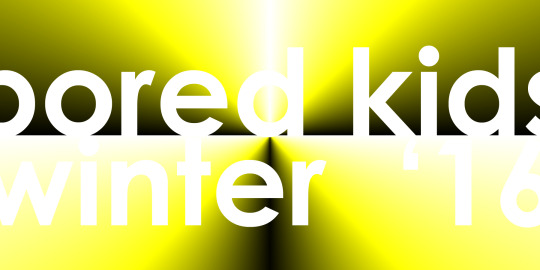
winter ‘16 - the post internet suicidal
I'm a week into winter break. 24 days sit between now and life resuming. 15 days until the end of a 2016 that pundits (read: your twitter feed) are calling the worst year in recorded history. For the college going crowd, life stops in December. Two and a half years in you're not really going home anymore. You're going to a place where you used to live for a month and pretending like you can just pick up where you left off. You can't anymore. There's no need wondering why this is the time of year people start opting out of living.
The past two months I've drifted in and out of what I hesitate to call suicidal depression but is most certainly suicidal depression. Life is uninspiring, I don't belong anywhere, I'm all alone. Blah blah blah. You've heard it all. I don't know if its possible to write a piece on feeling suicidal while keeping my self-awareness in tact. This surely isn't a unique state to find myself in. 20. Nearly finished with college. It's cookie cutter. I'm Justin Long in a 2006 film where Justin Long wants to kill himself.
This is the mindset I've taken. I think this is the way a lot of the modern youth look at it. Kurt Cobain was a messiah for killing himself. Now it's kitschy. Played out. It's difficult to seriously tell someone how you feel because your own suicidal thoughts are tropes. Post-modern depression can't play itself at face value because it's too aware of what came before it.
And with this state of mind it becomes a surprisingly great medium through which comedy can thrive. I'm not talking about the epidemic of “existential memes”, and I'm definitely not talking about the pseudo-anarchistic “kill yourself”s of mid 2000's web culture. When you're depressed while knowing how played out being depressed is there's a sort of third-person juxtaposition of your own suffocating dread with the unexpected hilarity that comes with living.
Here's a quick example before I get into my list: I called the suicide hot-line the other night. Writing that is weird because calling in a vacuum means it basically didn't happen. Calling and telling everyone on this random tumblr is holding up a giant neon “I'M GOING TO KILL MYSELF” for everyone to see. To explain: I don't actually think I'm going to kill myself. But I think about killing myself. Like constantly. Just thinking about killing myself. I don't know if that qualifies as suicidal depression. The idea is that thinking about this all the time normalizes the thought and then I'll off myself eventually.
Anyways. Back to that “quick” example. I called the hot-line and the tone beeps. Some automated voice tells me to hold on. I hang up. I call again a few minutes later, get a little further and hang up again. Seeing as I've called twice, I'm pretty sure I need to talk to someone and that I should just go through with it. So I call again, wait through all the automated voices, listen to some jaunty tune and finally I get through to someone.
“Hello, thank you for calling. How may I help you?”
I stutter through some words and hang up. I didn't know suicide hot-line answered the phones like a fucking Marco's Pizza. I laugh and fall asleep.
This isn't even that funny, but it was hilarious to me because of the juxtaposition. Me, in bed, feeling so crushed that I have to call a number made only for people who want to kill themselves up against the bizarre normalcy of the answering voice on the other end was enough for me to step back and laugh at it all.
This probably isn't true of everyone's situation, but it's how I've been looking at it. It doesn't really help, like I'm not going to feel better because something somewhat comedic happened when I was at my lowest, but when you take that step back and look at the stigmas of suicide it's worth stopping to appreciate it, even if for just a moment.
Anyways, to keep this somewhat on topic with what we normally do here at bored kids, here's a short list of shit. Since my life has completely frozen in time, I've had ample time to explore some new media stuff. So here's a couple things that let me take a step back and appreciate a few moments in this time of dread:
Starz's The Chair
The premise of The Chair is promising in itself. It chronicles the struggle of two first-time directors making a film from the same source script. Along the way the decisions and changes they make will ultimately lead to two entirely different films. But there's a twist: one of the directors is Shane Dawson. Yes. That Shane Dawson. In a post all about self-awareness, it is refreshing to see one human being who carries on without any. (That's a bit of a lie. Dawson shows himself to be incredibly unsure of himself at points in time. He, however, has a skill many lack: the ability to shut down these voices and continue anyways.) The point in the third or so episode where he vehemently argues to keep a scene of a homeless man eating his own shit because its his “creative vision” was the point at which I was sold. Truly one of the best character studies of our time, no matter how much you loath the character.
The Microphones - It Was Hot, We Stayed in The Water
Phil Elverum's opus may still be The Glow pt. 2, but there's something intimate about It Was Hot...'s slimmer track-listing that makes it more suitable for these long winter days of nothingness. There's so much love here. The Glow”'s fuzzy, soothing Odyssey of endless warmth. “Sand”'s fleeting moments of nostalgia and regret packed into less than two minutes. (Eric's Trip, the original artist, is another December favorite of mine). I don't want to go on too much because, spoiler alert, there's very likely an ode to Elverum coming soon here, but I can't not put this on here because the amount of loops I've given this album.
https://www.youtube.com/watch?v=fNCWAlE7Uz0&
“Gucci Rollin a Cigarette”
Just watch it. The link’s right there, you might as well if you’ve gotten this far. This version gets props for getting the title right.
Serengeti -“Dennehy”
Joke rap is such a contentious topic. With the unfortunate meteoric rise of Lil Dicky we have an example of what not to do. Hell, even Childish Gambino can take a page out of what Serengeti does on this track. Don't apologize for what you are and don't beg to be taken seriously. Serengeti puts together a fun, heartwarming track about the sweet-spot between love and obsession with your hometown. I won't break down how well written and clever the lyrics are (although “favorite Mayor Daley” gets a laugh every time) but instead focus on the tone. This is clearly an alternate topic to the hip-hop norm, but Serengeti takes it as far as it can go. Everything works because it's played straight and the rhymes are clean. He's joking, it's lighthearted, but it isn't what we see from joke rap usually. It's entirely thematic and every line is perfectly in place. He hits it out of the park, Sosa style.
Short list, I know. Also, back to juxtaposition, pretty weird that these two things go together. Just writing about depression feels out of place for what we do. Ah fuck it. It works. We'll be back soon.
#suicide? i guess? what a weird tag#serengeti#shane dawson#the chair#gucci#gucci mane#the microphones#phil elverum#seasonal depression
29 notes
·
View notes
Photo
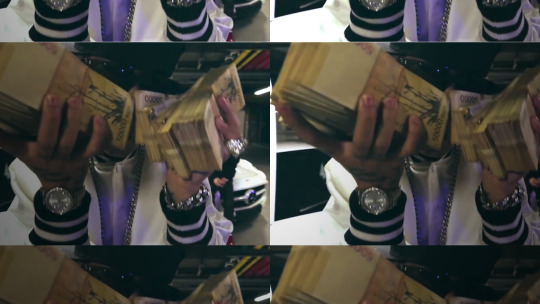
Everyone wanna be a nigga but no one wanna be a nigga
by E. Schoop
Culture theft is nothing new in society, but in hip-hop, it seems to be a thoroughly unique phenomenon in how ubiquitous it is. Disregarding the Eminem and Macklemore connection between white colonialism in black music, the influx of other cultures has a weird effect on the genre. It’s not as if it’s inherently wrong to be inspired by other countries’ music or art, but there’s a fine line between appreciation and appropriation, and many acts are thinly straddling this line.
Take for example, Korean rap. Keith Ape’s come up has been particularly publicized as a sort of East meets West collaboration, however it feels like he’s an easy target to hype up. Doing the whole SpaceGhostPurrp/Denzel Curry thing as a Korean dude screams novelty act, even with the co-signing of Flocka and Awful Records, among others. Does this mean he’s disrespecting rap? Of course not, but he may be getting a pass due to his unlikely origin story.
Besides Ape though, the majority of Korean rappers gleefully steal from old American hip-hop tropes as if they’re reciting a grocery list. Glorification of wealth? Check. Modelesque girls? Check. Trying really hard to be from the hood? Bigass check. All these artists are like Ken dolls, bouncing around from outfit to outfit in an effort to camouflage whatever trend is popular at the moment. Their getups invoke Paul Wall and French Montana in both grills and awkward stage presence. At least Keith Ape has involved himself with the people he’s loosely ripping off, groups such as Illionaire Records have easily claimed territory in Korean culture that is intrigued by black people but much more willing to support their own countrymen.
The most egregious example from America right now, however, is The Buttress. This Twitter rap Williamsburg resident can claim the award for being a combination of Internet pastiche and hipster racism by way of shitty faux-horrorcore. Unlike musicians from countries 6000 miles away, she has no excuse of replacing personality with references and allusions to better things, We get it, you like Cronenberg and Pan’s Labyrinth, but could you please take that style to some shittyass indie instead of a genre known for its originality? Not to mention the gulf in quality between her and less appreciated black female rappers such as Junglepussy and Dominique is staggering and unfair to those artists.
I digress, but a big part of why I hate this kind of seizure of black culture is its overshadowing of black artists who deserve money and attention for their frankly superior offerings. Obviously Future and Young Thug are raking in cash for their achievements, but what about the Ka’s and the Lil Yachty’s? The spotlight placed on them seems far and few between compared to corporate Korean fabrications and cyberspace frauds. Blackness through a lens usually seems to only be rewarded when it is concocted stereotypically or in a way that benefits nonblack people, and it’s imperative serious treatment and respect be given to black hip-hop outside the Datpiff hypebeast sphere.
70 notes
·
View notes
Photo

Steen/Generico, Owens/Zayn, “It doesn’t matter what their names are!”: Character dualities in media, and why theirs is the best one going
by H. Hernon
I was doing what anyone else would be doing on a Wednesday night: watching John Woo’s classic film Face Off. For those of you haven’t seen Cage and Travolta go at it, the movie is basically just that: Nic and John’s characters hate each other with an unearthly passion and end up devoting their lives to ruining the others’. While I didn’t enjoy it quite as much as the mostly baked viewing audience that night, it did spark something in my brain: this is just like a worse version of the Steen (Owens)/Generico (Zayn) feud.
Character dualities are common in media, and they are awesome. The most obvious is Batman and The Joker, two opposing personalities that not only clash wonderfully, but also change how we view the other. Alan Moore’s The Killing Joke (the finest Batman story ever told, fight me) is a story about the Joker’s possible origins, but it also tells us more about Batman and who he is. The Joker had the legendary “one bad day” that changed him, but by learning this about the Joker we can see the allusion to Batman and the “one bad day” that changed him: his parent’s death. The story is about both of them because the two are so intertwined with each other.
This kind of relationship can come across as… forced, I guess? For example, I think The Dark Knight pushes it a bit too far. The whole “you complete me” thing paints it really obviously, but it still works. That relationship always works, and it’s Hollywood so of course things will be a bit pushed to the extreme. Face Off really pushes it though. It lacks the context of years of Batman comics. Castor (Cage) and Sean’s (Travolta) relationship is so absurdly black and white and it lacks the nuance of a Killing Joke or a certain wrestling feud I’ll get to soon. The two are just… good or evil. Castor compares them to God and the Devil at one point and it’s just so heavy handed and a bit contrived. The two are opposites for sure, but only because their characters are so watered down and nothing other than their moral compasses and mental states. This isn’t to say Face Off isn’t a fun movie, it’s really good, but for reasons other than this relationship, which to me falls flat and keeps it from being great.
To find the best modern example of these kinds of character relationships, look no further than the world of wrestling. Ring of Honor, 2007. Kevin Steen and El Generico are best friends and tag partners. Steen is loud, blunt and doesn’t give a fuck. Generico barely speaks any language, is enthusiastic and leaves it all in the ring for the fans. The two work in tandum to win the Ring of Honor Tag Team titles. They lose the titles. Steen isn’t happy. 2009. Steen wraps a “beautiful steel chair” around Generico’s head. And well, I don’t want to describe the entire damn feud here, but here’s one of the best hype videos in indie wrestling history to help my case, for Final Battle 2010:
youtube
This feud is now legendary among wrestling fans, it got WON Feud of the Year 2010 and many of you probably all know the story. The thing that sells this for me is the passage of time. The entire feud, if you count Final Battle 2012 as the end as many do, is FIVE YEARS long! Their whole story together builds their relationship as very real, and makes Steen’s turn on Generico, TWO YEARS in, so much more impactful. The two characters are more nuanced then they seem at first glance: Steen was over as a face, being evil isn’t part of his character, but he was always an asshole and he was fed up with losing. He isn’t “the Devil”, he’s a human who made one choice that would forever change his and Generico’s lives. Hell, even Generico, a mostly comedic character, is given more to work with. Sure he’s mostly a plucky underdog, but in this feud we see his acting chops come into play with genuine sadness, and later straight up rage. The two DO complete each other, solidified in a spine-tingling moment when Steen, now Ring of Honor champion in 2012, gets a familiar package delivered to him:

That’s fucking legendary! And this is me glossing over their great PWG work, including their amazing tag team tournament run at Generico’s final indie show. You see, in 2013, El Generico was heading to WWE. Steen would be left in the indies as his friend would unmask and start a career in NXT as Sami Zayn. This would surely mean the end for Steenerico, right?
NOPE STEEN’S IN WWE AND ITS EVEN BETTER BABEY! Seriously, I truly believe Owens/Zayn is the best thing the two have ever done. There are so many layers, so many nuances. Owens debuts as Zayn’s longtime friend the night Zayn finally wins the NXT title after over a year of working towards it. The two share an emotional hug in the ring before Owens turns on Zayn, power-bombing him on the side of the apron. The two have feuded basically ever since, tying their careers together in the process. There’s just so much emotionally at play now. Owens is upset Zayn got signed first and left him behind. Zayn is mad Owens injured him. Owens is mad Zayn has the title, because Owens has a family he needs to provide for and the title means more money, while Zayn only has himself. Zayn is mad because his year long struggle is ended by someone he trusted more than anyone. Their movesets clash, their fucking music clashes, it’s just perfect. Owens is the bad guy but this is how you do a bad guy in this situation: he’s wrong but he’s right and he brings out this anger in Zayn we don’t really see otherwise. The two work so well together because they are so intertwined as characters and performers.
This shows why I love the concept of these larger than life dualities. They are hard to pull off well, but when they are they’re some of the most rewarding and interesting ways to tell stories. Batman and The Joker will be fighting forever, and we can only hope Owens and Zayn do the same.
#wwe#kevin steen#kevin owens#sami zayn#nxt#el generico#roh#ring of honor#bathroom selfies#the joker#the dark knight#face off#nic cage
11 notes
·
View notes
Photo
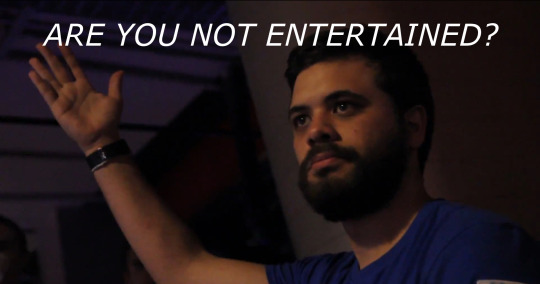
The Revival Of Hungrybox
By E. Schoop
Before all the early 2016 dominance, some of you documentary whippersnappers might not know this, but Hungrybox was written off as a threat to ever win a major with all the Gods present. I know, that’s impossible to believe. But on the real, the platinum age has been good to the Jigglypuff posterchild. Up until about Norcal Regionals 2013, Hbox was branded as a choker, a player who had been figured out by the likes of Armada, Mango, PPMD, and even Mew2King on several occasions. He of course had the exalted Godhood status, rarely to never being beaten by non-gods, but it was so hard to see him with a losing record to all his peers sans M2K. One could see how it’d be reasonable to say he couldn’t, faltering with real career and adulthood in front of him.
So to see the resurgence of Florida’s #1 is nothing short of amazing. In an era where Fox is king, the work Hungrybox has done to redefine the matchup is a testament to the flexibility of Melee. Him and Captain Crunch working together to craft combos and tactics is akin to a tennis player and his coach going over drills, which shows how esports the game has become. It’s bizarre how people expect Hbox to beat Mango every time they meet up when over the course of 2009-2014 Hungrybox only beat him 5 times. The reversal of fortunes between these two is nothing short of ludicrous, and I imagine they’ll both switch positions over the course of the year as Mango figures out just what will propel him to 1st.
It’s also wild how much Hungrybox has changed his game over the course of his career. The vitriol he received from many for being a campier puff in the days of ROM2, Genesis, and Apex 2010 has been quelled, replaced by an uneasiness whenever he’s on stream due to how simple he makes every matchup look for Puff. The turnaround of his mechanics from defense to aggression is astonishing, considering how tough it is for Puff to get in consistently, and his refined punish game and complex mix-ups show the extent he’s gone to be able to win in this Fox-centric meta. Every time he pops off, it’s for that disappointed or saddened younger self that couldn’t quite beat Mango or Armada, and really, what’s the harm in that?
People have been saying that at no point during Pound did it feel as though Hbox wasn’t going to win, and to some extent that’s the inverse of his entire career. He didn’t have the championing of say a Mango or an Armada during their reigns since his debut major victory at Apex 2010, and it’s wild that in 2016 Hungrybox has once again become a force when many didn’t think he’d get this far. Hate him if you must, but this iteration of Juan Debiedma is garnering everyone’s respect for an important singular reason; he’s doing the impossible with Jigglypuff.
21 notes
·
View notes
Photo
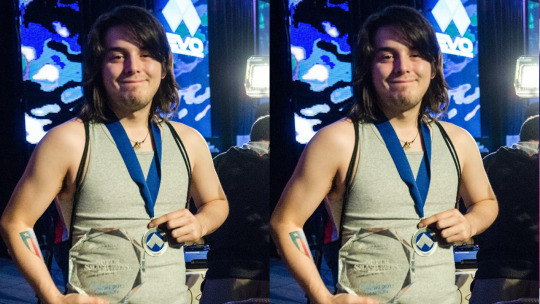
Mango and Melee Itself
By E. Schoop
As history repeated for a third time last Sunday, there was a sense of disbelief. This was supposed to happen, but it wasn’t. If 2014 was year of the GOAT, then 2015 seemed to be the year of the buster, with Mango disappointing relative to the soaring highs he’d achieved the previous 12 months. In the back of everyone’s minds, Armada vs Hungrybox was the logical conclusion. Wishful thinking need not apply, despite the spectacular events leading up to the third day. Of course, thou shalt not sleep on the kid.
The top 8 of Genesis 3 has been cemented as the pinnacle of Melee. One can argue the outcome of Armada winning was the buzzkill to an otherwise thrilling run courtesy of Joseph Marquez, but as someone who was there, it didn’t matter. The WWE-style ending of Mango winning wasn’t in the cards, but that wasn’t the point of everyone’s elation. Melee’s own Steve Austin was back in top form, going full-on berserker mode reminiscent of the first two Genesises. This, isolated from all the other elements, raised the energy of the packed venue to an incredible, something that hasn’t been felt since Big House 4, and not nearly at a fever pitch like this.
Maybe there’s something in his home state that propels this kind of fervor, but Mango himself wasn’t the only attraction. Every single set was completely bonkers, each player having their own storyline. Ice getting top 8 at a supermajor for the first time since Evo 2013. Nintendude solidifying himself as the best Ice Climbers in the world with his first big top 8 finish. SFAT having the tournament of his life and representing his home region by getting 5th. PPMD only being bested by the 1st and 2nd place finishers, as well as showcasing he’s on his way to peak strength. Axe once again showing how Pikachu isn’t close to being figured out as a mid-tier while making a personal best 4th at supermajor. Hungrybox phenomenally performing in a way that concretely suggests he’ll be a contender at every single tourney he attends.
And then, there were two. Fate can’t even begin to describe how majestic it was seeing the Swede and the American Hero meet once again in a Norcal battle. With Waffles and Phil commentating, nothing could be substituted for these moments. It literally felt like everyone in the venue were just appreciating the game, in all its glory, played by the best twosome to ever hold a controller. With Genesis 3 so early in the year, it’s affirmed the community of how monumental 2016 can be, and with Leffen (hopefully) getting his visa, having the 6 gods at Pound/CEO/Evo could be the catalyst to the game’s best year ever.
But more importantly, Mango is back. His spiritually enlightening play in San Jose was just what we all needed, and time and time again, he proves he’s the spirit and driving force of Melee. With apologies to Daigo, Faker, Boxer, Dendi, the OGRE twins, and the many figureheads of other video games, Mango is the most beloved gamer of all time. His position as a borderline cult leader in the Mango Nation is absolute, and every time he exhibits his limitless skill it seems like Melee gains a new thousand fans. Yet, the great thing is that, unlike the other times he’s begat this sort of enduring legacy, the ever-waiting titan that is Adam Lindgren dares him to step it up another level. We can only hope that he rises to the challenge.
12 notes
·
View notes
Photo
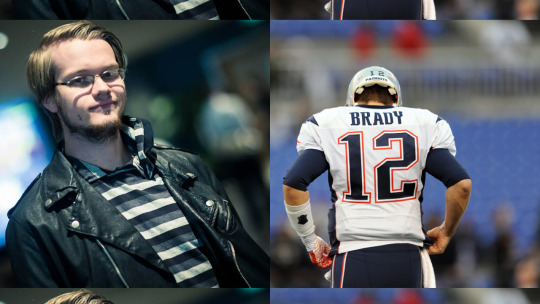
Forget “Death and Taxes”, the Only 2 Constants are Armada and the New England Patriots
by H. Hernon
Another year, another January. While notably horrendous for most media releases, January is prime time for one thing: sports. Not only are the NHL, NBA, and WWE in full swing (sports entertainment counts too!), but we get the NFL playoffs and a Melee supermajor. The two biggest stages in their respective sports. This adrenaline pumping action should leave fans guessing: Who could possibly take it all? At the end of this month, who will reign supreme? It could be anyone, right? Wrong. It’s never a mystery. Every January the story is the same. Armada and the New England Patriots.
I’m sick of it. Everyone is sick of it. Maybe not Armada yet, but soon. You can only take so much of the same. Just look at their resumes:
Armada in January:
2nd at Apex 2010
1st at Apex 2012
1st at Apex 2013
2nd at Apex 2015
1st at Genesis 3
Patriots (Belichick and Brady) in January:
10 AFC Championship Games
6 Super Bowl Appearances
4 (Eventual) Super Bowl Wins
This is pure domination, and it’s no surprise why. Armada and the Patriots have in their reigns of terror been inhumanly consistent, infuriatingly efficient and inconceivably elite. Personally, I would also add boring to that list, with both taking on the results-based strategy that gets you, well, results.
Armada’s Fox takes the one of the most seat-of-you-pants characters in video game history and reduces it to the bare necessities. Watching Mango win a set with an off-stage side B (ON PURPOSE DAMMIT) wasn’t just a breath of fresh air, it was a fucking oxygen tank. Having to sit through another Hungrybox/Armada Fox set is slowly killing me, and honestly the latter has more to do with it. I can’t stand watching the guy play, and a lot of it is hard to verbalize, but there’s something so monotonous that his sets at this point. Maybe it’s just that I feel like I know the results already. There’s almost no point in watching when you know what’s going to happen. Genesis 3 was fun because all the storylines fell into place, but so was the underdog Patriots winning Super Bowl XXXVI. Trust me, as a football fan, it gets old.
The Patriots have long used this model as well. Watching them play football just isn’t fun. Short, dink and dunk passes slowly down the field. Methodical and inevitable. Pair that with a shutdown defense that thrives without any big plays, their twenty-one takeaways being the lowest of any playoff team. It’s what they’ve been doing for nearly all of their winning years, excluding one particularly swaggy season thanks to dullness-antidote Randy Moss. NFL fans have vilified this team for over a decade now, partially due to off the field controversy, but I think this may play more of a role than people think. It won’t be long until Armada gets the same treatment.
This isn’t to say that what these two have done isn’t impressive. It most definitely is. But impressive and entertaining are two different things, and often work against each other. Spectators clamor for a change of pace, drama, suspense, a spark of excitement. For years now, these unstoppable forces of the gridiron and CRT have prevented this from happening. Although Mango looked pretty fresh Sunday, and Cam’s got those moves… Fuck it. I shouldn’t get my hopes up. See you guys next year.
#ssbm#melee#armada#g3#genesis3#nfl#nfl playoffs#patriots#pats#brady#super bowl#smash#nintendo#football#new england
6 notes
·
View notes
Photo
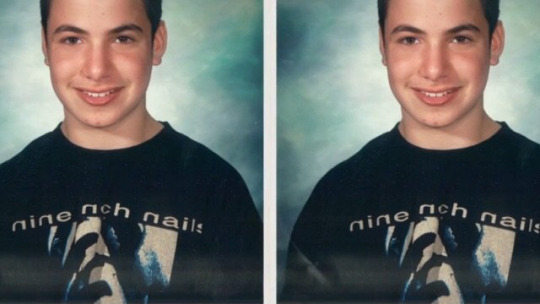
“God money…”: Neoliberalism and Trent Reznor’s Masterpiece
by H. Hernon
I sit at a table in silence with my parents, stabbing at a slab of meat, knife in hand like Norman Bates. It’s my last dinner before leaving for Ohio University the next morning, but this isn’t a normal mood for family meal. Blasting from the other room is my dad’s latest record collection acquisition, which you can probably guess from the title of the article. This was the first time I had heard Nine Inch Nails’ Pretty Hate Machine.
This means that every subsequent time I’ve heard Reznor’s triumphant first strike I’ve been in what is truly the ideal space: a neoliberal public university, run by administrators who relate more to the prose of “Head Like a Hole” more than they would care to admit. (quick neoliberalism definition: a system in which privatization and lack of government regulation opens up economic markets to privatization, which inevitably leads to unnecessary consumerism, greed, corruption, and all that Ronald Reagan-Margret Thatcher bullshit. It’s really interesting stuff.)
That’s what is so interesting about Pretty Hate Machine. Reznor hasn’t “Stopped caring” like he boasts about on The Downward Spiral. This isn’t the man who has given up completely yet. Reznor’s character here despises society so much because he’s entrenched in it. He doesn’t know anything else. “Head Like a Hole” invites us into the mad world of Reaganomics, and how in a system built around capitalism, said capital is perpetuated as the only indicator of success. Immediately after we get “Terrible Lie”, in which Reznor seethes “Hey God, why are you doing this to me? Am I not living up to what I'm supposed to be?” his character breaking down when this kind of financial deity isn’t giving him the fulfillment he needs. Then there’s a bunch of songs about heroin and well, you should just listen to the album because it’s fucking great.
Experiencing this album in the belly of the neoliberal, higher-education beast is a whole different experience. I don’t know if you’ve heard, but students are pretty pissed off. And it’s because, like Reznor, we’re so entrenched in this system where we’re consumers instead of citizens, statistics instead of students, our experience is commodified and sold to others before we realize we’ve been duped by a business, not a university. It is a “Terrible Lie”, and once we realize it, too late. They have our money and we don’t matter.
Pretty Hate Machine does a better job than anything of capturing this spite and anxiety better than most modern attempts. Musically it’s sleek, danceable. This rage, unlike Reznor’s later work, isn’t one that separates us from societal norms. Its listenability exemplifies its message: we hate society because we’re a part of it. We go to clubs, we party and experiment and try new things. We consume, we take in what the neoliberal state gives us because the way its structured forces us to rely on it. We dance along as we brim over the top. At Ohio University, we got to class (sometimes) because they have our money, we’re a cog in the machine, but we’re not going to have a grand revolt, or a Downward Spiral, we’re just going to keep doing it.
Well you've got me working so hard lately.
Working my hands until they bleed.
If I was twice the man I could be,
I'd still be half of what you need.
Still you lead me and I follow.
Anything you ask you know I'll do.
These are the opening lines of “Ringfinger”, Pretty Hate Machine’s final track. I mean, it is Nine Inch Nails, so an angsty ending is expected, but damn. It really doesn’t get any better does it? That’s why this is Reznor’s magnum opus, there is no closure in a neoliberal human experience. There’s no breaking the mold. We can’t “make this all go away”. It keeps going, and going, and going.
14 notes
·
View notes
Text
Four 2015 Media Moments I’m Thankful For
by E. Schoop
This time of year is when we share with others what we’re thankful for. So without further ado:

Steph Curry rises from his grave versus the Cavs
Game 3 of the 2015 NBA finals. Stephen Curry looked a shell of himself versus the Cleveland Cavaliers. This was the MVP struggling to put up buckets being defended by the Outback Jesus in Matthew Dellavadova while Lebron single-handedly carried his squad to an improbable series lead. Staying in Ohio for Game 4, the future was bleak for Curry and the Warriors. Of course, Chef Curry took full advantage of Lebron’s overworked condition and dropped 22 on the incredulous Cleveland crowd. Knowing well that the city can’t win jack shit, Steph utterly destroyed Cavs fans in Game 5 and 6, proving full well why he was MVP. It always seems too easy for that smugass lightskin, and if he can repeat in 2016 as well, you’ll see a lot more Curry hate in the coming months, whether it’s at him, his wife, or even Riley, considering the internet’s hostility. Thanks Steph, for being so annoyingly good.
youtube
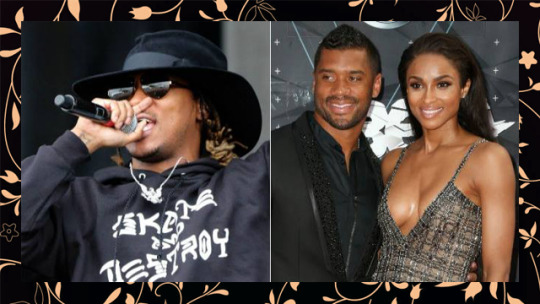
The year of Future
2014 culminated in an upward swing for the Atlanta rapper. Honest and Monster were solid tapes, the former exposing him to an even bigger audience than Pluto while the latter showcased his emotional and thematic range after his tumultuous breakup with Ciara. Disregarding his feelings, Future said fuck that noise and went completely off for this year. Beast Mode and 56 Nights alone in the first three months was a statement in itself, one that endeared the rapper to the Twitter populace and helped him gain steam among non hip-hop fans. Then Dirty Sprite 2 dropped and simply destroyed the competition. His brand of lean-infused trap was in-vogue and there wasn’t anyone close to his output; even the near-instant classic To Pimp A Butterfly couldn’t match the type of fanfare DS2 boasted in the streets, in the club, and on the radio. By the time What A Time To Be Alive dropped, it didn’t matter good the record was, Future’s victory lap was assured. He had dominated 2015, and to see that kind of popularity from such an idiosyncratic rapper was something I’m thankful for.

Melee is back! (again!!!!)
After 2 years of a symbiotic relationship bearing fruitful returns, Melee at Evo in 2015 did not seem as though it would be a possibility. Smash 4 was the new kid on the block, reminiscent of Brawl back in the day as the rival upcomer who drew new casuals to their scene to eclipse Melee’s popularity. However the case may be, the resurgence of the 14-year old mainstay was not to be ignored, with many saying it wouldn’t matter if Melee wasn’t represented at the tourney, considering the grassroots power no other community can boast. But Melee deserved a spot at the big kids table way more than some game Nintendo half-heartedly pushed, and the prevailing perception was that Mr. Wizard wanted that crispy esports money. There was no way we could compete. Miraculously, the McRib man showed us mercy and gave us a spot alongside the final day games. Of course, it was another amazing tournament, the biggest of all time for Melee, and a reminder of why Melee is one of the great competitive video games that I give so many thanks for.
youtube
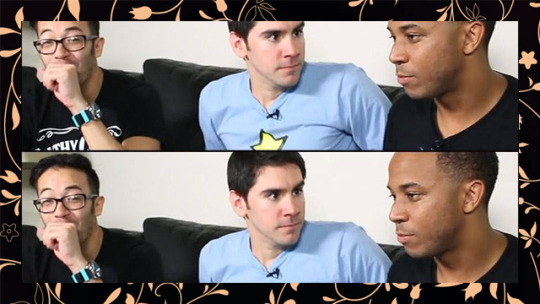
Scar on the Excellent Adventures
Episodes #84 to #87 are some of the most monumental moments in FGC history. The amount of cockiness and ego-stroking across 2 hours of footage cannot be contained across one man, and Gootecks is agape at two Mike Rosses sitting right next to him. This is entertainment at its finest, one can’t deny the sheer ridiculousness coming from these videos, watch these if you love Street Fighter or if you just enjoy laughing. Thanks guys.
youtube
12 notes
·
View notes
Text
Four 2015 Media Moments I’m Thankful For
by. H. Hernon
This time of year is when we share with others what we’re thankful for. So without further ado:

Yahoo! Gives Community the Sixth Season it Needed
Season five of Community wasn’t bad, don’t get me wrong. But for those of you who watched the last few episodes… yeah. That’s not the note I wanted the show to end on. Luckily, Yahoo! (yes, Yahoo!) picked up the former best show on TV and gave us the most rejuvenated look at Greendale since season three. Was it the same? No, of course not. It never could be. But it was fun and felt good to see this characters again. The whole season was more relaxed: there’s a “hang-out” charm that replaces the high-concept, high energy gas that fueled the show in its prime. Season three of Community wouldn’t do paintball again on principle. Season six will do it again because it’s fun. Paget Brewster and Keith David are welcome editions, and while they can’t fully replace years of attachment to the fallen three of the Greendale 7, they fit in well on a show whose characters are finally maturing after being at a community college for five years. And man, the ending? That’s the note I want to end on. I won’t spoil it, but as someone who followed this show through hiatuses and internet campaigns (and a 10,000 comment review on AV Club, shout out to anyone involved in that beautiful mess), as well as it following me in my first significant move from “home”, I don’t think a finale has had a bigger emotional impact on my life. Thanks,Yahoo!. Now when’s my damn movie?

The Toronto Media Chases Phil Kessel to Pittsburgh
Oh boy. Phil the Thrill, baby. While the Penguin’s season so far has been up and down, I don’t think any fan can say Phil hasn’t been a bright spot. But what’s even weirder is how it happened. The Toronto hockey media might be the worst group of journalists alive, which is impressive in clickbait culture. The amount of shit they put our boy through is insane. He’s un-coachable. He’s lazy. He’s fat. He can’t win. He can’t lead. He can’t score 3000 goals a game and single-handedly drag a dead franchise out of the grave with and anchor tied around his waist. And so Phil Kessel is driven out of a city where he’s the best player in town and into one where he’s Tom Servo. (Crosby is Joel, Malkin is Crow… Fleury is Gypsy? This analogy is falling apart.) It’s been absolutely delightful to watch him play in black and gold, and it goes to show you what can happen when you don’t stop the circus before it starts. So thanks Toronto media. That being said, expect something between scathing and depressed come June if the cup isn’t in Pittsburgh. Or the June after that. Or the June after that… fuck you Eli.
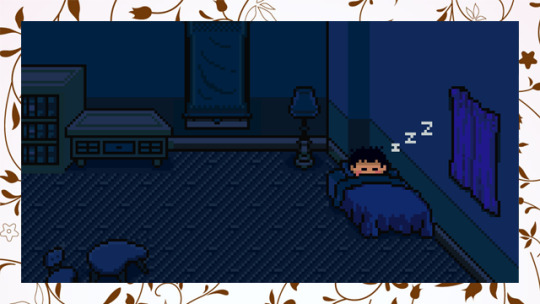
Nintendo (Finally) Re-releases Earthbound
This one is just weird. Not to go all John Oliver, but its 2015 people! Why is it just now that Nintendo is acknowledging Earthbound? For those who don’t know, Earthbound (or Mother 2) is Nintendo’s slightly off 1994 RPG, and it is absolutely fantastic. Fun, unique, adventurous, genuinely heartfelt, it has it all. The dialog is sharp, the game-play is… well, an RPG, but everything is dripping with this faux-Americana aesthetic that makes even the few mundane parts engaging. It is Nintendo’s cult-classic. Mario’s cousin who’s really into Evil Dead and Ariel Pink. And for some reason… they pretended like it didn’t exist for twenty years. Okay, that might be an exaggeration. Ness snuck into Smash 64 while no one is looking so now once every six years they have to explain to everyone who the kid with the yo-yo is, but other than that nothing. We didn’t get the sequel. We didn’t even get the first game! Luckily, now is the age of downloadable gaming, so it doesn’t really cost that much to re-release an existing game. Not to mention they’ve starved the entire fan-base of content for so long that these re-heated leftovers are now our four-course meal. This still isn’t enough- the fact that Mother 3 isn’t alongside it on the Virtual Console is a video game war crime, but that’s another article. Either way, thanks Nintendo.
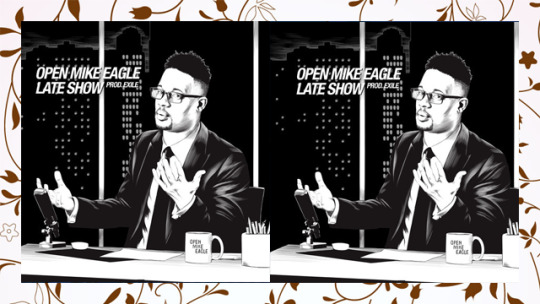
Open Mike Eagle’s “Dark Comedy Late Show”
I’m pretty sure this song actually dropped first as a single-thing in 2014, but it’s on a 2015 release so IT COUNTS. “Dark Comedy Late Show” is, for my money, the best song to come out this year, if not the most important song this year. Open Mike has long been a favorite of mine, but this is easily him at his most insightful. Every line of prose is perfectly placed, perfectly worded, a breath isn’t wasted. Open Mike has apparently called this “the monologue that would get him fired if he had a talk show”, and it shows, with a tangible passion in the air between words. The exasperation in his voice is something we don’t usually see from him, and it’s a good look.
“You can watch us on the newsfeeds/Fucking y'all's mornings up
Until America admits that it likes dogs more than us
And I can see the Super Bowls of the future:
The Ferguson blacks vs. Missouri State Troopers
The privacy rights vs. the personal computers
Concussion researchers vs. university boosters”
When trying to pull a quote it’s tempting to post the whole song, but this cluster shows what makes it so great. He’s witty, he’s profound, and I’m laughing at how ridiculous it all is and sulking at how true it is. Its dark comedy as a genre refined, and it just so happens to be on one of the more interesting beats of the year. So thanks, Open Mike, for the song I needed to hear this year.
37 notes
·
View notes
Photo

FLCL and Identity In Growing Up
by E. Schoop
In anime, Gainax is a studio known for its captivating portrayal of coming-of-age stories. Shows like Gunbuster, Gurren Lagann, and Neon Genesis Evangelion are greatly important in elevating the pantheon of animated productions whose tales revolve around an identity in crisis during their main characters' aging. However, out of the many hits they're produced, one single entity remains as the pinnacle of bildungsromans in the medium of anime. FLCL is not only one of, if not the finest anime ever produced, but a masterpiece dealing with the life and times of a troubled adolescent that grows tremendously throughout the show, and in only 6 episodes to boot.
The main character of FLCL is Naota Nantaba, a kid with some clear interest in apotheosis in his life. He is obsessed with being an adult ever since his brother left for the U.S. to pursue a career in professional baseball, but the antics around him from Naota's brother's ex Mamimi Samejima ever annoy him more and more. Out of the blue, a woman on an orange vespa abruptly crashes into Naota during a walk home with Mamimi and changes his entire life. Her name (supposedly) is Haruko Haruhara, and she's a zany alien with a penchant for trouble and a robot sidekick named Canti. As you could imagine, hijinks ensue in the most impossibly superb fashion and Naota's catchphrase “Nothing amazing ever happens here” gets inverted quicker than this show ends.
Throughout the course of the show Naota's mentality and identity changes rapidly because of the ensuing chaos that occurs around him, mirroring the struggles of puberty and the torment that is adolescent life. He rapidly matures from a cynical, pessimistic individual who doesn't value life to an outgoing, confident teenager due to the unreal amount of trials he has to go into. Fighting intergalactic demon monsters, dealing with Haruko's alien absurdism and Mamimi's melancholia, and navigating the horrors of middle school are all part of FLCL's agenda in teaching how serendipitous and odd growing up usually is. In the end, it all seems mysterious but that's how getting older usually is, and with a show as succinct as this is in putting that concept to weight, almost anyone can identify with Naota's tribulations.
26 notes
·
View notes
Photo

Marshall McLuhan says: A “Watchmen” Movie Is Entirely Pointless
by H. Hernon
A story is only as good as you tell it. That seems obvious, but stick with me here. Any media work will fall apart if you can’t find the right way to get the message out. The words, pictures, pixels, or whatever you’re working with have to all to function to deliver the ultimate meaning to an audience. But what happens when a medium is inherent to the message? Or as Marshall McLuhan so eloquently puts it: “The Medium is the Message”?
Alan Moore’s Watchmen is undeniably one of the greatest comic books of all time, and my personal favorite book ever. It tells the story the moral struggle of being a superhero in a world where crime-fighting has been commonplace (and subsequently banned) for years. An unknown killer is picking off capes and everything spirals out of control and, like many of the things I write about just read it because I can’t even begin to describe it all here.
So why is making a movie out of that pointless? Well it starts with how Watchmen was initially conceived. DC Comics had recently purchased some of Charlton Comic’s classic characters and didn’t know what to do with them. Moore had the idea to take this characters and use them as a character study of heroes in a hyper-real world, but DC backed out, not wanting all their new characters to be decapitated or made into incest fiends or something else because it’s Alan Moore and who fucking knows what he might do. This meant Moore and artist Dave Gibbons had to create new characters that could hold the emotional weight and importance of the long-standing and recognized Charlton crew. The Watchmen had to be… familiar.
How did they do this? By relying on the tropes and archetypes of the sixty years of comics before them to make a cast that feels like they have been there the whole time. They all have elements of existing heroes. Take Rorschach for example. From the beginning we understand his role as the loner, the rogue, the detective. He’s part Batman, part Wolverine, part Punisher, a million other parts. But we know what he is after being with him for all of two pages. Since this is a comic book we understand the context in which he exists. He doesn’t need to be explained. He’s familiar.
Every aspect of Watchmen uses this style of building the characters and the world. It assumes that since we’re interested in this premise, we bring some understanding of the medium to the table. Watchmen is also able to use itself to comment on the medium. It takes friendly jabs at the silly costumes, the happy-go-lucky silver age, the villain speeches, and so on. It is looked at as game changing because within its pages it legitimately asks questions about how the game is played. These familiar aspects are turned on their head and we end up looking at the traditional roles and narrative of a superhero comic different. There’s a reason everything got “mature” in the tail end of the eighties, there was simply nowhere else to go after Watchmen (and Dark Knight Returns, but that’s another essay) raised the stakes so high.
“The medium is the message”. Marshall McLuhan famously wrote. Elaborating further, “Each medium, independent of the content it mediates, has its own intrinsic effects which are its unique message.” This is why the comic book format is the only way Watchmen can be told. The way the medium effects the context of the story and characters is an insurmountable mountain on the path to adaption. How can you adapt sixty years of comic book history? What standing does a film have to critique, or give perspective on, or twist perception of, another medium? None. Watchmen can’t exist in the truest form of itself as a film.
Hell, an entire issue of Watchmen is symmetrical. The entire issue! The act of physically turning and comparing pages is part of the message. This can’t be recreated. Nor can all the tidbits of magazine articles, newspapers, and other pieces at the end of each issue that all add to the world at the end of each issue. Nor can the in-universe comic, mirroring our character’s story AND playing into the plot all at once and… holy shit. Honestly, Alan Moore is fucking insane.
So I haven’t seen the Watchmen movie. I don’t hate it or complain about it being a cash grab. I don’t really care about it, honestly. It just isn’t Watchmen. It can’t be. The medium is the message, and Watchmen is a comic book. And I wouldn’t want it any other way.
38 notes
·
View notes
Photo

What ever happened to Korean LoL?
by E. Schoop
2013, Honors English, junior year. The school gave us laptops so there was no point in me paying attention to the damn class, since the teacher was a total idiot. I'd been playing League of Legends since Christmas, enraptured by its captivating and unique gameplay. Here was a game (since I never played DOTA before) that was completely new in its mechanics to me, and was so fresh and fun that it was an addicting experience. Since I'm a fuckin jock too, I looked up the competitive scene and found it was extremely popular as well, especially in Korea, the home of competitive gaming. So what was first period dedicated to? Watching the pinnacle of League of Legends, the OGN Champions League, in Korea.
This was a very special time in the period of Korean e-sports. Starcraft has long been the monolith of the country, where the biggest Starleague events would have thousands upon thousands of people show to spectate live their championships, with companies like South Korean Telecom and Jin Air sponsoring players. But League, a team game, was swiftly becoming more popular than the sequel to Brood War, and it wasn't hard to see why. League has this basketball-like quality to it, where every member has to execute their role in tandem with the others to an extremely difficult effect. And the infrastructure that Korean e-sports had built up was unparalleled compared to other countries which led to their teams becoming top-tier in only a year after the region as a whole discovered the game.
All this combined for totally enthralling viewing. I was hooked, waking up at 6 am on weekends to catch matches, religiously following players and teams, and exalting the commentary of Erik “DoA” Lonnquist and Christopher “Monetcristo” Mykles onto the highest. The dynamic duo of the LoL casting business, the English side of OnGameNet (the Korean e-sports TV channel) was just as good as the Korean side, with Monte providing in-depth analysis coupled with DoA's hilarious references and rapid-fire play-by play comparable to the best traditional sportscasters.
The main draw though, were the players and teams. Oh man, were these dudes good. Azubu turned CJ Entus Blaze and Frost, with Blaze spotlighting their king of top lane Flame, and the support god Madlife on Frost shone how these two teams were the reigning lords of the region. Najin fielding charismatic superstar MaKNooN with Sword and the up-and-comers on Shield such as Gorilla and Save would become monoliths of Korea in their own right. KT Rolster B fielding mechanical beasts Ryu, KaKAO, and inSec becoming one of the most fun teams to ever watch in any competitive video game. And of course, SK Telecom and Samsung. One cannot mention one without the other. The house that Boxer built turned into the organization of Faker in an instant with the 17 year-old crafting masterpiece after masterpiece performances to add to his growing legend. The Leblanc game vs MVP Blue. Soloing Ambition on Nidalee vs Blaze. Making supports' lives hell on Ahri. And as always, who could forget THAT game vs KTB, Zed vs Zed, making the League of Legends world stand up and applaud. When 2013 was all said and done, Faker hoisted the Worlds trophy, signaling his year of dominance had come to a perfect finish. Not to disparage the rest of SKT though, Winter 2013-2014 truly showed all SKT members were unparalleled at their positions. Impact, the rock of top lane, shined in teamfights. Bengi was a master jungler and excelled at early-game first bloods. Piglet was an ADC with the precision of a pianist and the aggression of a bull shark, and PoohManDu, his other half of the “Hundred Acre Woods” bot-lane stayed cool, calm, and utterly collected in the face of any adversity. They dominated the season, not dropping a single game on their way to a 3-0 over KT Bullets in a rematch of Summer 13' finals that didn't leave any doubt as to who had the edge.
But a new challenger was lurking amiss the glory SKT had produced. The once victorious MVP teams of Blue and Ozone were bought by Samsung and slowly growing in power. Despite Ozone suffering a brutal Worlds group stage drowning (the last ever by a Korean team), while other teams were focused on defeating the titan of SK Telecom, Samsung's lineup changes (switching dade and PawN from Ozone to Blue) were master works of strategy and fit the teams perfectly. When White (renamed from Ozone) 3-0'd SKT in a superior demonstration of tactics and skill, the players exploded. This was the culmination of all the passion and determination the team had put into toppling a giant of the game, and the following months was all Samsung's for the taking. Both sister teams were juggernauts at every position. Like Impact before them, Acorn and Looper could play any champion with ease. Junglers Dandy and Spirit were monstrous, devouring every lesser foe in their path. Imp and Deft made your favorite ADC look like a scrub, and with Mata/Heart at their side, might as well surrender at champ select. And with Dade and Pawn too? Forget even trying. Champions like Yasuo, Shyvvana, Kha'Zix, and Dr. Mundo were all marked by Samsung members as the best of all time to play them, just to name a few. The only reason White never won an OGN title was because Blue beat them twice on-route to a Spring championship and Summer runner-up. Even though KT Arrows stopped Samsung's reign of terror in Korea, White's impeccable Season 4 Worlds victory was proof of the organization's global stamp on the world's most popular video game, and it seemed definitive that the region in general would capture the trophy the entire time.
So what changed? A combination of Chinese hyper-capitalism, Korean failure and Riot's head-scratching rule changes. When China finished second in Worlds again, the owners of Chinese LoL teams were determined to capture top Korean players and turn them into the centerpieces of their new-look lineups. A language barrier seemed inevitable, but the Korean e-sports organization known as KeSPA grossly underpaid their country's professionals and Chinese millionaires swooped in to capture the money-deficient 20-year-olds with huge paychecks. It looked as if some players would stick around in their home country, but when Riot decided to keep OGN in-line with their western LCS leagues and ban sister teams, almost all was lost. Without the extra amount of spaces for the players, a Korean exodus began, and of the world-class talents, only Faker remained as the crown jewel of the SKT association. With Korea in shambles, it seemed the end of their domination, and the world over breathed a sigh of relief.
Jesus Christ, as if that would happen. Any chance of a different nation's team winning Worlds was dashed by the final, as SKT met the upstart KOO Tigers in a Korean exclusive. Faker and Bengi cemented their status as absolute immortals of League, winning their second championship and soundly defeating KOO 3-1, with fans questioning how they ever could of doubted Korea. But the idea that there was a hole in the armor was due to how weaker the scene seemed in comparison to yesteryear. It was frankly depressing to see all the Koreans bored or uninterested in China, and the mass changes that took place was symbolic in many ways. Even with the 3 Korean representatives at Worlds going off in tandem, it lacked the lionized nature of S3 SKT or the oppressive brilliance wielding by the Samsung teams. Being solidly better (think San Antonio Spurs) is admirable yet monotonous, and the storylines and entertainment that only Korea could provide in 2013 and 2014 are sorely missed. Maybe 2016 will bring back that triumphant League of Legends, and with the numerous roster changes/Koreans returning from China, the future is surely bright.
youtube
12 notes
·
View notes
Photo
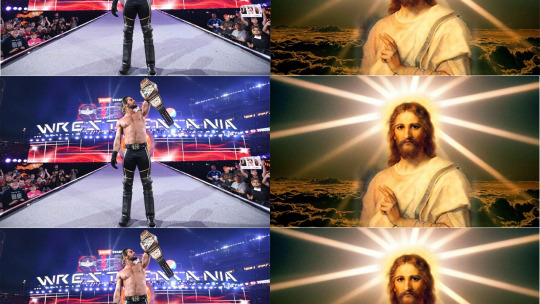
Seth Rollins Died for Our Sins
by H. Hernon
So I didn’t plan on writing this. Last week I kind of touched on wrestling, and I didn’t want to something similar two weeks in a row. But something happened. Something monumental. Seth Rollins made the ultimate sacrifice for us this weekend.
They call him Crossfit Jesus. His entrance music is titled, “The Second Coming”. And this weekend, Seth Rollins completed his transformation: by getting injured, he helped prevent the spread of the Roman empire, and freed us all from tyranny.
David Meltzer reported that at Survivor Series, Roman Reigns was to beat Seth Rollins for the WWE Championship. This would be a disservice to Rollins’ entire title run. Roman Reigns? The guy we’ve been rejecting for almost a year now? The guy who still can’t give a promo that doesn’t make me full-body cringe harder than a Nathan Fielder bit? He’s improved, sure, but come on. He’s not only not yet ready, but he’s in the worst position possible. He’s built as this “hot-headed” machine who “took Lesnar to the limit” (read: hit his signature move a gazillion times) whose only believable challenger is Lesnar. Or Cena. Not the best option.
Rollins is the best performer on the roster, and his title run, while flawed, has gotten him some pretty genuine heat. He’s so talented he made me hate him at times, which is hard to do in this day and age. And while we can all look forward to his eventually babyface return, it is a shame that all this heat is going to go to waste. Reigns is already being built as a machine so he didn’t need the pop of being the guy to take the belt off of Rollins, but can you imagine the crowd reaction of a true underdog, against all odds (actual, not Cena-odds), pinning Seth in the middle of the ring? (GOD DAMMIT DEAN AMBROSE SHOULD BE THE GUY. I CAN’T BE SUBTLE ANYMORE FUCKING DEAN AMBROSE SHOULD HAVE BEEN THE ONE TO BEAT SETH.)
All this is a testament to how good Rollins was. And is. And will be. His feud with Ambrose was genuinely compelling television. Those two are god damn magic together. He made the Cena feud work by being so damn slimy and even sold this convoluted, entirely comedic Kane story-line to perfection. He’s the crispest in the ring, elite on the microphone and shit, if watching RAW was tough before then these next months might be insufferable.
Losing to Reigns would’ve been a waste. A waste of his run, a waste of his talent and his credibility. If he loses the rematch (which he would’ve) he looks like the loser every wrestler has told him he is the past six months and his left directionless. A chosen champ without a championship. Wading in the water until an eventual face turn that won’t mean shit unless they’re willing to give him back the belt, which will be tough when only one man can look strong.
And you know what, maybe we didn’t deserve a storybook ending to Seth Rollins’ run. But Seth Rollins did. And so Crossfit Jesus did what any messiah would do. He died for our sins. And all I can say?
You should be damn sure you’re watching when he rises.
52 notes
·
View notes